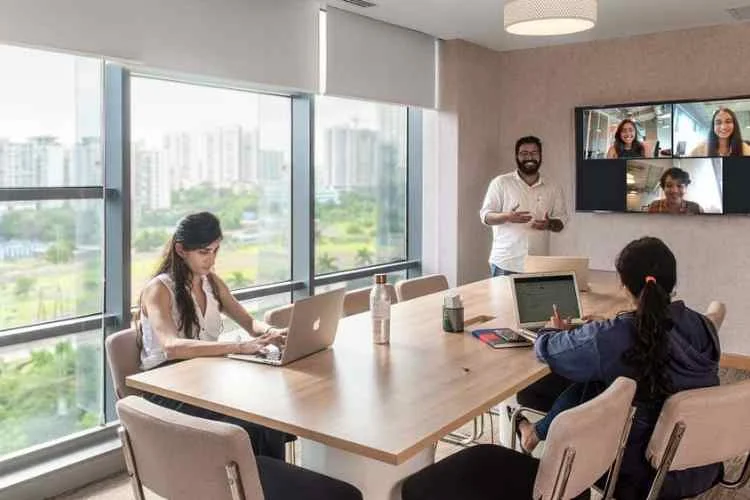Navigating the complexities of managing meeting spaces effectively can be a significant challenge for businesses of all sizes. A solution that has gained popularity for its ability to streamline this process is the room scheduler. This innovative tool simplifies the booking of meeting spaces and brings a new level of interaction and intelligence to the meeting room environment. Now, to explore the various benefits of utilizing this scheduling app and how it transforms meeting rooms into more communicative and efficient spaces.
Streamlining Meeting Room Bookings
One of the most immediate benefits of this innovative solution is its ability to streamline the booking process. With intuitive interfaces, these systems allow users to view available rooms, their capacities, and specific amenities at a glance. This transparency eliminates the need for back-and-forth emails or phone calls, saving valuable time and reducing the likelihood of double bookings or scheduling conflicts.
Enhancing Meeting Efficiency
By integrating with organizational calendars and providing real-time updates, a scheduler ensures that meeting participants are always informed about the when and where of their meetings. This integration reduces tardiness and no-shows, as participants receive timely reminders and can quickly find alternative spaces if necessary. Furthermore, these systems can offer insights into room usage patterns, helping organizations optimize their space allocation and meeting schedules.
Facilitating Better Resource Management
Effective meeting planning goes beyond finding an empty room; it involves ensuring the space has the necessary technology and resources. This scheduling app can display detailed information about each room’s features, such as video conferencing capabilities, whiteboards, and seating arrangements. This ensures that meetings are not just about finding a space but about finding the right space, thereby enhancing the overall meeting experience.
Encouraging Collaboration and Innovation
This tool can catalyze spontaneity and creativity in environments where collaboration is key to innovation. These systems encourage impromptu meetings and brainstorming sessions by allowing teams to find and book spaces quickly. This accessibility ensures that ideas can be discussed and developed without delay, fostering a culture of innovation and dynamic teamwork.
Reducing Administrative Burden
Automating room bookings through this system significantly reduces the administrative workload on staff. By automating tasks such as booking confirmations, cancellations, and adjustments, these systems free up staff to focus on more strategic tasks. This improves operational efficiency and enhances job satisfaction among employees who can engage in more meaningful work.
Transforming Meeting Rooms into Intelligent Spaces
Perhaps the most intriguing aspect of this facility is its ability to make meeting rooms “do the talking.” By integrating smart office technologies, these systems can adjust room conditions based on the organizer’s scheduled meeting type or preferences. For instance, a room can automatically adjust its lighting, temperature, or even the layout of smart furniture to suit the purpose of the meeting, creating an optimized environment for productivity and collaboration. Additionally, these intelligent systems can tailor audio-visual equipment settings, such as microphone sensitivity and display resolutions, to ensure clear communication and effective presentations. Furthermore, with the capability to track occupancy in real-time, the room can optimize energy usage, turning off unnecessary lights and equipment when the space is unoccupied, contributing to a more sustainable and cost-effective operation. This seamless integration of technology elevates the meeting experience and propels the workplace into a future where efficiency and comfort coalesce.
In conclusion, adopting a room scheduler is more than just upgrading the traditional way of managing meeting spaces; it’s a step towards creating more responsive, efficient, and intelligent work environments. By streamlining the booking process, enhancing meeting efficiency, facilitating better resource management, encouraging collaboration, reducing administrative burdens, and transforming meeting rooms into intelligent spaces, these systems represent a significant innovation in how businesses conduct their day-to-day operations. With these systems in place, companies can ensure that their focus remains squarely on driving productivity and fostering a culture of innovation, making the meeting room an integral part of their success strategy.
